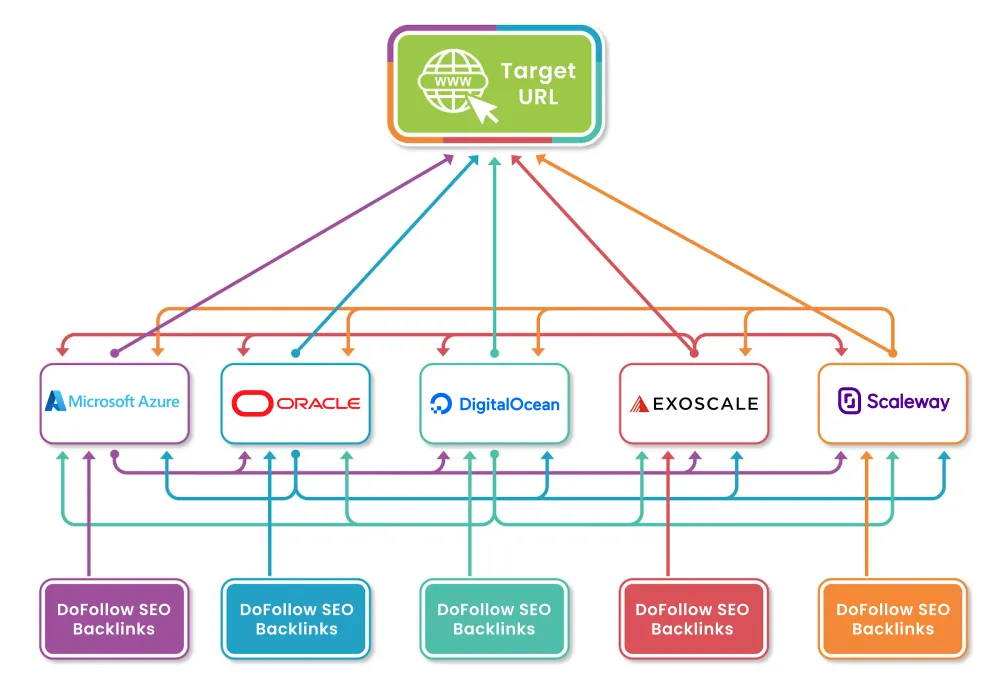Universal Cloud Service: Streamlining Workflow Worldwide
Universal Cloud Service: Streamlining Workflow Worldwide
Blog Article
Comprehending the Various Sorts Of Cloud Services and Their Uses
From Framework as a Solution (IaaS) to Software Program as a Solution (SaaS), each kind of cloud solution offers a special objective and gives distinctive benefits. By checking out the nuanced performances and applications of each cloud service, one can navigate the intricacies of cloud computer with precision and foresight.
Infrastructure as a Solution (IaaS)
Framework as a Solution (IaaS) offers individuals with virtualized computing sources online on a pay-as-you-go basis. This cloud computer design provides vital IT facilities such as virtual machines, storage space, and networking without the demand for organizations to buy and manage physical web servers and data centers. With IaaS, customers can scale sources up or down based on their demands, offering flexibility and cost-efficiency.
Among the crucial advantages of IaaS is its capacity to quickly provision and deploy infrastructure components, enabling businesses to react swiftly to altering demands and market problems. By contracting out infrastructure management to the solution copyright, organizations can focus more on their core organization tasks as opposed to taking care of the complexities of equipment maintenance and upgrades.
Moreover, IaaS offers a high degree of integrity and security, with suppliers normally using durable data backup, disaster recuperation, and cybersecurity steps. This aids guarantee that critical service operations stay continuous and information remains safeguarded versus potential dangers. Cloud Services. Overall, Infrastructure as a Service simplifies IT operations, enhances scalability, and minimizes resources expenditures for services of all dimensions
System as a Solution (PaaS)
Building upon the foundation of Infrastructure as a Service (IaaS), Platform as a Service (PaaS) offers an extensive atmosphere for programmers to create, release, and manage applications without the complexities of underlying facilities monitoring. PaaS supplies a platform with tools and services that streamline the development process, permitting programmers to concentrate on creating code and structure applications as opposed to taking care of facilities issues.

Software Application as a Solution (SaaS)
Software Application as a Service (SaaS) reinvents the way businesses accessibility and use software program applications by using them on a subscription basis via cloud suppliers. This cloud computing design eliminates the requirement for companies to preserve and mount software program on individual tools, as whatever is organized and handled centrally in the cloud.
SaaS gives an economical service for services as they only spend for the software program they utilize without the included costs of equipment maintenance or software program updates. It likewise supplies scalability, enabling firms to quickly change their software program needs based on their needs.
Additionally, SaaS applications can be accessed from any kind of tool with a net connection, advertising collaboration and flexibility among remote teams. Safety is a leading concern in SaaS, with providers executing robust procedures to secure information saved in the cloud.
Popular instances of SaaS include client partnership monitoring (CRM) software application like Salesforce, efficiency devices like Microsoft Workplace useful source 365, and partnership platforms like Google Work area. SaaS remains to acquire traction in business world due to its scalability, cost-efficiency, and convenience.
Feature as a Solution (FaaS)
With the advancement of cloud solutions like Software application as a Solution (SaaS) enhancing software application delivery, Function as a Service (FaaS) represents a standard shift in just how code is executed in a serverless environment. FaaS allows developers to create and implement specific functions or items of code in feedback to details occasions without the demand to handle the facilities. This serverless computing version makes it possible for programmers to concentrate entirely on writing code to implement specific functionalities, without worrying themselves with the underlying facilities or server monitoring.
Features are performed in stateless containers that are rotated up and down as needed, making certain ideal resource application and cost-effectiveness. By extracting the infrastructure layer, FaaS streamlines growth, accelerates time to market, and improves total agility in deploying cloud-native applications.
Storage Space as a Solution (STaaS)
A fundamental component in cloud computing, Storage space as a Solution (STaaS) provides individuals with a efficient and read scalable service for handling information storage space requirements. STaaS allows organizations to keep and get data from remote web servers using the internet, eliminating the need for on-premises hardware. This service uses adaptability by enabling users to pay only for the storage they utilize, making it a cost-effective service for companies of all sizes.

STaaS is especially useful for companies with fluctuating storage needs, as it supplies a safe and secure and trustworthy storage space service without the need for substantial in advance financial investments. By leveraging STaaS, organizations can improve their data monitoring procedures, enhance access, and boost information safety in an affordable manner.

Conclusion
In final thought, understanding the different kinds of cloud solutions and their usages is important for people and organizations looking to leverage the advantages of cloud computer. By making use of the right cloud service, companies can enhance their efficiency, scalability, and flexibility in managing their IT infrastructure and applications.
From Facilities as a Solution (IaaS) to Software Program as a Solution (SaaS), each kind of cloud solution offers an one-of-a-kind objective and gives distinct advantages. linkdaddy cloud services press release. By discovering the nuanced functionalities and applications of each cloud solution, one can browse the intricacies of cloud computer with precision and foresight
With the development of cloud services like Software as a Service (SaaS) simplifying software program distribution, Feature as a Service (FaaS) represents a paradigm change in just how code is carried out in a serverless setting.In verdict, recognizing the various types of cloud services their explanation and their usages is necessary for individuals and businesses looking to utilize the advantages of cloud computing. By making use of the ideal cloud solution, organizations can enhance their performance, scalability, and versatility in managing their IT framework and applications.
Report this page